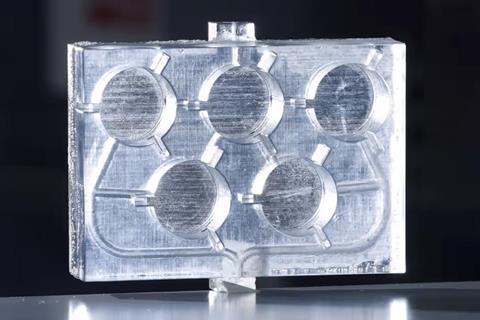
A 3D-printed device has been developed to determine the effects of investigational drugs on the human body and could help reduce the need for testing drugs in animals.
Created at the University of Edinburgh, it mimics the movement of medicine through a patient’s body, and is an entirely novel experimental tool.
The plastic ‘body-on-chip’ device contains five compartments which replicate the properties of the heart, lungs, kidneys, liver and brain in the human body. These compartments are connected by channels that imitate the human circulatory system through which the investigational drug is pumped.
The device works by using positron emission tomography (PET) scanning to produce detailed 3D images which show the effects of the test drug on each organ.
Liam Carr, the device’s inventor, is an in vitro pharmacology PhD student at the University of Edinburgh and said that the ‘flexible’ device can be used to investigate the effects on the body from various conditions, including cancer, cardiovascular and immune diseases.
“You could even combine multiple diseased cell models to see how diseases interfere with each other,” he said.
Carr’s PhD supervisor, Dr Adriana Tavares, said that having a device that links the five organs together means that scientists are able determine the effect of a drug on the whole body.
“This is a really important area of medical research, as we continuously learn about how diseases traditionally perceived to be restricted to an organ, or system, can have diverse effects across other distant organs or different interconnected systems,” she said.
With more than 92% of drugs that show promise in animal tests failing to reach the clinic, Tavares added: “This device shows really strong potential to reduce the large number of animals that are used worldwide for testing drugs.”
































